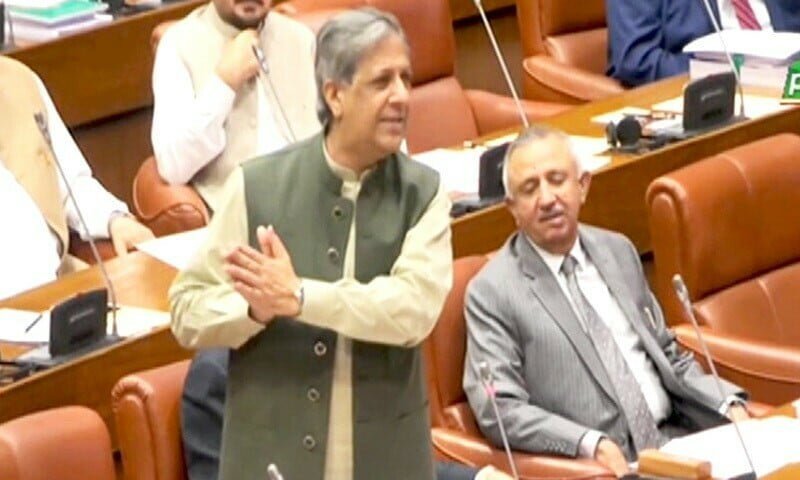A bill seeking amendments to the Elections Act 2017, aimed at empowering the Election Commission of Pakistan (ECP) to announce poll dates unilaterally without consulting the president, sailed through the Senate on Friday.
State Minister Shahadat Awan moved the Elections (Amendment) Bill 2023 amid protests by senators belonging to Jamaat-i-Islami and the opposition PTI.
According to the statement of objects and reasons of the legislation, the Constitution envisages the duty of the ECP to organise and conduct elections honestly, fairly, and under the law.
“The ECP enjoys administrative and functional autonomy under the provisions of the Constitution and the Election Act, 2017, which facilitates the body in fulfilling its core obligation of free and fair elections.
“To further strengthen the commission, amendments in sections 57(1) and 58(1) of the Election Act 2017 are required to allow the ECP to announce poll dates for general elections on its own,” it added.
The amendments state:
- Section 57(1): The commission shall announce the date or dates of the general elections by notification in the official gazette and shall call upon the constituencies to elect their representatives.
- Section 58: Notwithstanding anything contained in Section 57, the commission may at any time after the issuance of notification under subsection (1) of that section make such alterations in the election programme announced in that notification for the different stages of the election or may issue a fresh election programme with fresh poll date(s) as may in its opinion to be recorded in writing be necessary for this act.
The statement further said that the parliamentary committee constituted by the Senate chairman had also examined the proposed amendments and recommended that the federal government should initiate the process of tabling the legislation.
Earlier, during the Senate session, Law Minister Azam Nazir Tarar said that the right to choose the date for polls had been given to the ECP in 1973.
“But Ziaul Haq gave this right to the president through an amendment,” he recalled, noting that the parliamentary committee had also given the nod in favour of the law.
The Constitution, Tarar continued, was superior. He said the amendments would make the role of the ECP more active and enable changes in the election schedules as well.
“This amendment is being brought to remove all the ambiguities,” he told the house, adding that the Parliament had the power to legislate when the Constitution was silent.
On the other hand, while raising objections to the proposed law, Leader of the Opposition Shahzad Waseem said: “Legislation can only be done under the Constitution.”
“The Constitution is very clear about the date of the elections and it gives both the president and governor the power to announce the date for polls,” he said.
Waseem added that the ECP could not be given the authority to exceed the powers envisaged under the law. He suggested that “simple legislation” should be done instead of complicating things.
Subsequently, the Senate Chairman Sadiq Sanjarani presented the bill for voting before the House and it was passed with a majority.
Disqualification of lawmakers
A copy of the bill presented in the Senate today, which Dawn.com has seen, also included an amendment to Section 232 (Qualifications and Disqualifications) of the Election Act, 2017.
“Notwithstanding anything contained in any other provision of this Act, any other law for the time being in force and judgement, order or decree of any court, including the Supreme Court and a high court, the disqualification of a person to be elected, chosen or to remain as a member of the Parliament or provincial assembly under paragraph (f) of clause (1) of Article 62 of the Constitution shall be for a period not exceeding five years from the declaration of the court of law in that regard and such declaration shall be subject to the due process of law,” it stated.
The amendment added that the procedure, manner and duration of disqualifications and qualifications should be as explicitly provided for in relevant provisions of Articles 63 and 64 of the Constitution.
“Where no such procedure, manner or duration has been provided for therein, the provisions of this Act shall apply,” it added.














